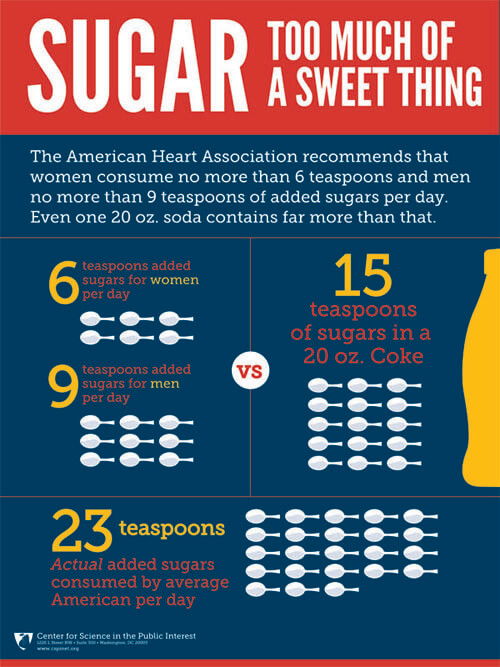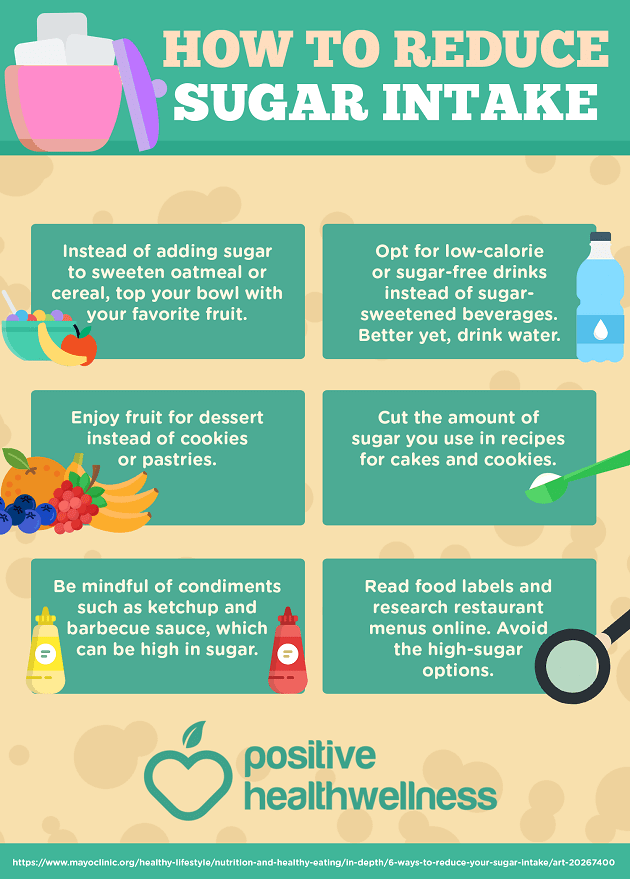
The Best Sugar Free Living
There are multiple reasons to pursue a sugar free diet. You may simply want to slim your waistline, or you may be living with a disease like diabetes that requires a careful diet. The truth is consuming less sugar will do you a world of good.
HOW MUCH DO WE REALLY NEED IN OUR DIET?
The American Heart Association recommends limiting added sugar to 6 teaspoons for women and 9 teaspoons for men, per day.
HOW CAN YOU REDUCE YOUR SUGAR INTAKE?
Sugar is hidden in so many foods we consume every day. Therefore, it is important to look at food labels to know where sugar may be hidden. It may be found under many different names such as fructose, lactose, sucrose, maltose, glucose, and dextrose. One of the main culprits is high fructose corn syrup, which can be found in tons of foods you may not suspect, such as frozen dinners, some vegetables, peanut butter, pickles, salad dressing, soup, canned fruits.
Because it can be difficult to completely cut sugar out of our diets, the least we can do is eat the minimum amount and opt for natural alternatives. If you are going to eat sugar, make sure it is the natural kind found in fruit. It is better to get your sugar fix from naturally sweet fruits as opposed to processed foods. This way, you can satisfy your craving for sugar while still getting some of the nutrients your body needs to fight diseases like cancer. Fruits are still high in sugar, so don’t overdo it.
Avoiding sugar from your diet is not a panacea, though. A healthy diet is about so much more than refusing that second sugar cube and keeping the cookies out of reach or hidden in the cupboard. Reducing your sugar intake can help you reduce the risk of obesity, heart disease, type 2 diabetes, high blood pressure, chronic inflammation, dental plaque and cavities.
TOP 7 BENEFITS LIVING SUGAR FREE
1. Get ready for younger looking skin: You will look younger According to Anthony Youn, MD, a plastic surgeon. Sugar causes a process by which the sugar molecules bind to and deform the collagen and elastin in our skin. Causing wrinkles. Giving up the amount of sugar you eat can also reduce glucose and insulin spikes in your bloodstream, reducing chronic and acute inflammation linked to aging.
2. Score lasting energy: A European meta-analysis of 31 studies found that sugar didn’t provide any energy boost. In fact, participants felt even more tired and less alert after they’d consumed sugary foods and drinks. For a real pick-me-up, you can rely on slow-burning carbs and high protein foods. Spread some peanut butter on an apple or put a slice of cheese on whole grain bread.
3. Weight loss: Sugar can be addicting, and when we decrease the amount that we eat, it also stops cravings, so we consume fewer calories and lose weight. When you replace sugar with nourishing whole foods, your hormones will naturally regulate, sending signals to the brain when you’ve eaten enough.” As a result, you’ll lose weight without trying so hard—often within the first week
4. Reduce your risk of diabetes: After quitting sugar your body’s natural detox systems will get a chance to do their job. In the first couple of hours without sugar, your pancreas will start to produce less insulin and your liver will also start to catch up on processing stored toxins. This improves the body’s insulin sensitivity & decreases chances of developing diabetes.
5. Set your ticker up for success with a healthy heart: When glucose spikes after consuming sugary food, our insulin increases to compensate for it, and this activates a part of our nervous system which increases blood pressure and heart rate. Those who ate the most added sugar were most likely to die from heart disease than their counterparts who consumed the least.
6. Boost mental health: High sugar consumption has been linked to higher rates of depression. This may be because sugar can lead to chronic inflammation, which impacts the brain function. When you remove sugar from your diet, you might feel that fog lift, along with your mood, in only one to two weeks.
7. Fewer mood swings: Ever experienced a sugar “high,” but that rush is short-lived? Several studies have linked diets high in sodas, juices, pastries, and other sugary foods to depression. One study found that older adults who drank more than four servings of soda per day were 30 percent more likely to be diagnosed with depression than people who drank unsweetened water, coffee, or tea.





